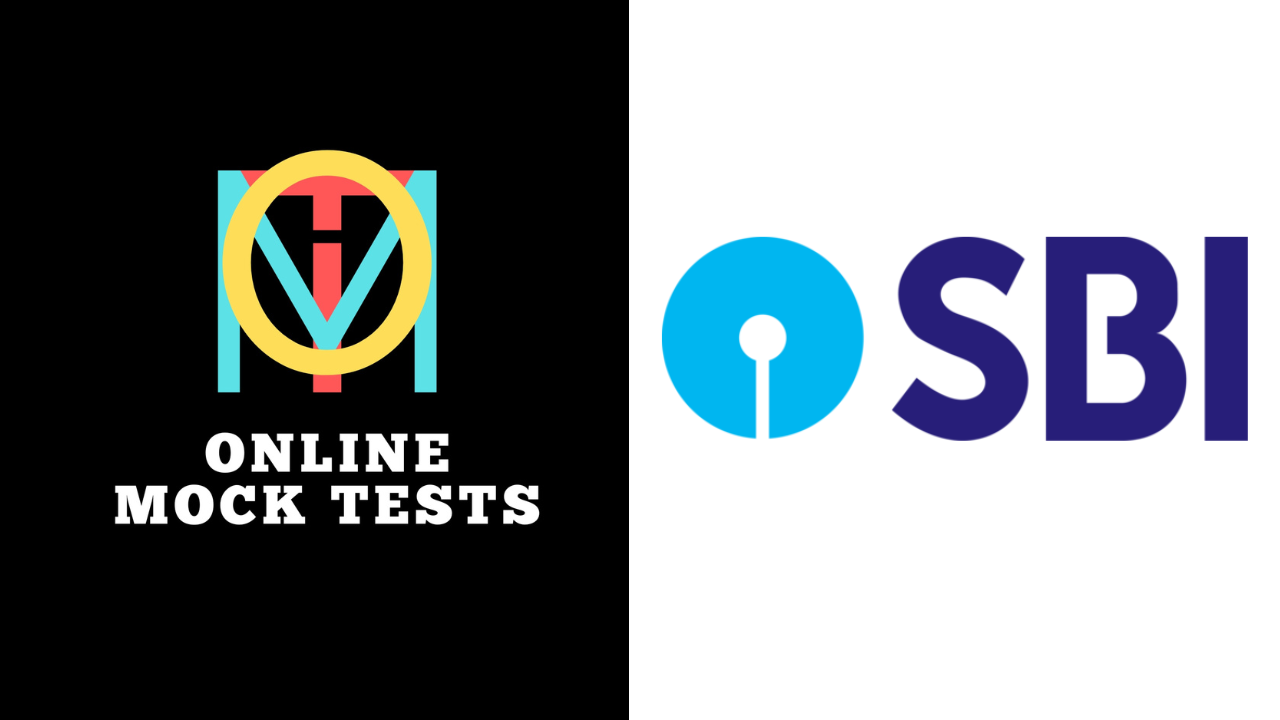Blog details
 SBI Clerk 2025 Preparation Roadmap
SBI Clerk 2025 Preparation Roadmap
The Ultimate Guide to SBI Clerk Exam 2025: Syllabus, Strategy, and Success Tips
Introduction
Are you aspiring to build a career in the banking sector? The State Bank of India (SBI) Clerk examination presents one of the most prestigious and sought-after opportunities in the Indian banking industry. As India's largest public sector bank, SBI offers stability, growth prospects, and a range of benefits that make the Clerk position highly competitive.
This comprehensive guide is designed to equip you with everything you need to know about the SBI Clerk Examination 2025. From understanding the latest exam pattern and syllabus to developing effective preparation strategies and managing exam-day stress, we've got you covered. Let's embark on this journey together to turn your banking career aspirations into reality!
SBI Clerk Examination 2025: Overview
The SBI Clerk recruitment process typically consists of two main stages:
- Preliminary Examination (Pre)
- Main Examination (Mains)
Candidates who clear both stages are provisionally selected for appointment, subject to document verification and other formalities.
Latest Exam Pattern
Preliminary Examination
The Preliminary Examination is conducted online and consists of 100 questions to be completed in 1 hour. Here's the section-wise breakdown:
| Section | Number of Questions | Maximum Marks | Time Duration |
|---|---|---|---|
| English Language | 30 | 30 | 20 minutes |
| Numerical Ability | 35 | 35 | 20 minutes |
| Reasoning Ability | 35 | 35 | 20 minutes |
| Total | 100 | 100 | 1 hour |
Important Notes:
- There is a negative marking of 0.25 marks for each wrong answer.
- The Preliminary Examination is qualifying in nature. Marks obtained will not be considered for final selection.
- Sectional timing is enforced, meaning you cannot switch between sections until the allocated time for a section is completed.
Main Examination
Candidates who qualify in the Preliminary Examination are eligible to appear for the Main Examination. Here's the pattern:
| Section | Number of Questions | Maximum Marks | Time Duration |
|---|---|---|---|
| General/Financial Awareness | 50 | 50 | 35 minutes |
| General English | 40 | 40 | 35 minutes |
| Quantitative Aptitude | 50 | 50 | 45 minutes |
| Reasoning Ability & Computer Aptitude | 50 | 60 | 45 minutes |
| Total | 190 | 200 | 2 hours 40 minutes |
Important Notes:
- There is a negative marking of 0.25 marks for each wrong answer.
- The Main Examination has sectional cut-offs along with an overall cut-off.
- Final selection is based on the marks obtained in the Main Examination only.
Detailed Syllabus
English Language
- Reading Comprehension
- Cloze Test
- Fill in the Blanks
- Para Jumbles
- Spotting Errors
- Sentence Improvement
- Vocabulary-based questions (Synonyms, Antonyms, Word Usage)
Numerical Ability/Quantitative Aptitude
- Simplification
- Number Series
- Data Interpretation (Bar Graphs, Line Charts, Tables, Pie Charts)
- Ratio & Proportion
- Percentage
- Averages
- Profit & Loss
- Simple & Compound Interest
- Time, Speed & Distance
- Work & Time
- Mensuration
- Probability
- Permutation & Combination
- Number System
Reasoning Ability
- Logical Reasoning
- Alphanumeric Series
- Ranking/Direction/Alphabet Test
- Data Sufficiency
- Coded Inequalities
- Seating Arrangement
- Puzzle
- Tabulation
- Syllogism
- Blood Relations
- Input-Output
- Coding-Decoding
Computer Knowledge (Main Exam)
- Basics of Computer Hardware & Software
- Operating Systems
- Internet & Networks
- MS Office (Word, Excel, PowerPoint)
- Computer Abbreviations
- Computer Security
- Recent Developments in IT
General/Financial Awareness (Main Exam)
- Current Affairs (Last 6 months)
- Banking Awareness
- Indian Financial System
- History of Banking in India
- Economic Terms
- Government Schemes
- Important Days & Dates
- Sports, Awards & Honors
- Books & Authors
- International Organizations
Preparation Strategy
1. Create a Structured Study Plan
A well-organized study plan is the foundation of effective preparation. Here's how to create one:
- Assess Your Strengths and Weaknesses: Take a diagnostic test to identify areas that need more attention.
- Allocate Time Based on Priority: Spend more time on weaker sections while maintaining proficiency in stronger ones.
- Set Daily, Weekly, and Monthly Goals: Break down your syllabus into manageable chunks.
- Follow a Consistent Schedule: Study at the same time each day to build a routine.
Sample Study Schedule (Weekly Plan)
| Day | Morning (2 hours) | Afternoon (2 hours) | Evening (2 hours) |
|---|---|---|---|
| Monday | Quantitative Aptitude | English Language | Revision |
| Tuesday | Reasoning Ability | General Awareness | Practice Tests |
| Wednesday | English Language | Quantitative Aptitude | Revision |
| Thursday | General Awareness | Reasoning Ability | Practice Tests |
| Friday | Reasoning Ability | English Language | Weak Areas |
| Saturday | Quantitative Aptitude | General Awareness | Mock Test |
| Sunday | Analyze Mock Test Results and Plan for the Next Week |
2. Section-wise Preparation Tips
English Language
- Read newspapers, magazines, and online articles daily.
- Note down new words and their meanings.
- Practice reading comprehension with diverse topics.
- Learn grammar rules and their applications.
- Attempt previous years' questions to understand the pattern.
Numerical Ability/Quantitative Aptitude
- Master basic arithmetic operations and shortcuts.
- Practice calculation-intensive questions daily to improve speed.
- Focus on data interpretation as it carries significant weightage.
- Learn formulas and keep a formula notebook for quick revision.
- Practice different types of problems to develop problem-solving skills.
Reasoning Ability
- Solve puzzles and brain teasers regularly.
- Practice seating arrangement and puzzle questions extensively.
- Develop a systematic approach for each type of reasoning question.
- Time yourself while solving complex problems.
- Learn to draw diagrams for visualization.
General/Financial Awareness
- Read financial newspapers and magazines.
- Follow banking and economy-related news.
- Make notes of important events, appointments, and awards.
- Use mobile apps for current affairs updates.
- Revise banking terminology and concepts regularly.
3. Effective Time Management Strategies
Time management is crucial for both preparation and during the actual exam:
During Preparation
- Use the Pomodoro Technique (25 minutes of focused study followed by a 5-minute break).
- Prioritize topics based on weightage and your proficiency level.
- Set specific goals for each study session.
- Eliminate distractions during study hours.
- Use commute time for revision or listening to educational podcasts.
During the Exam
- Quickly scan through all questions to identify easy ones first.
- Allocate time to each section proportionally based on your strengths.
- Don't spend too much time on a single question; mark it for review and move on.
- Keep 5-10 minutes for final review and verification.
- Manage sectional timing carefully, especially in the Preliminary Exam where you cannot switch between sections.
5. Improving Accuracy
Accuracy is as important as speed, especially considering the negative marking scheme:
- Practice Selective Answering: Attempt questions you are confident about.
- Double-Check Calculations: Verify your calculations before marking an answer.
- Eliminate Options: Use the process of elimination for questions you're unsure about.
- Develop Educated Guessing Techniques: When left with 2-3 options, apply logical reasoning.
- Regular Mock Tests: Take full-length tests to improve accuracy under exam conditions.
Previous Years' Cut-off Analysis and 2025 Trends
Previous Cut-offs (Overall Scores)
| Category | Prelims Cut-off (2023) | Mains Cut-off (2023) |
|---|---|---|
| General | 65-70 | 75-80 |
| OBC | 60-65 | 70-75 |
| SC | 55-60 | 65-70 |
| ST | 50-55 | 60-65 |
| EWS | 60-65 | 70-75 |
*Note: These are approximate ranges based on previous trends. Actual cut-offs vary by state and vacancy.
Expected Trends for 2025
Based on analysis of recent patterns and competitive landscape:
-
Increasing Competition: With rising unemployment and the prestige associated with banking jobs, competition is expected to be fiercer in 2025.
-
Higher Cut-offs: Cut-off scores are likely to increase by 2-5 marks across categories.
-
More Emphasis on Financial Awareness: Questions on banking reforms, digital banking, and financial inclusion are expected to gain prominence.
-
Data Interpretation Complexity: More complex and integrated data sets may be introduced in both Quantitative Aptitude and Reasoning sections.
-
Computer Knowledge Focus: With the banking sector becoming increasingly digitized, expect more questions on recent technological developments.
Common Mistakes to Avoid
During Preparation
- Inconsistent Study Schedule: Irregular study patterns lead to knowledge gaps.
- Neglecting Weaker Areas: Focusing only on strengths can be detrimental.
- Memorizing Without Understanding: Conceptual clarity is essential for problem-solving.
- Ignoring Mock Tests: Not taking enough practice tests fails to prepare you for the actual exam environment.
- Last-Minute Cramming: Attempting to cover the entire syllabus just before the exam causes stress and confusion.
During the Exam
- Random Guessing: Due to negative marking, wild guesses can significantly reduce your score.
- Spending Too Much Time on Difficult Questions: This can prevent you from attempting easier questions.
- Not Reading Instructions Carefully: Missing important exam instructions can lead to avoidable errors.
- Panic Management: Letting anxiety take over when facing difficult questions affects overall performance.
- Ignoring Revision: Not reviewing your answers if time permits can leave correctable errors unmarked.
Interview Preparation (If Applicable)
While the SBI Clerk recruitment process typically doesn't include interviews, it's good to be prepared in case the pattern changes or for future banking exams that do include interviews:
Key Areas to Focus On
- Banking Knowledge: Understand basic banking concepts, SBI's history, services, and recent initiatives.
- Current Affairs: Stay updated on national and international events, especially those related to economy and banking.
- Personal Background: Prepare to discuss your education, family background, strengths, weaknesses, and career aspirations.
- Behavioral Questions: Practice responses to questions about teamwork, leadership, conflict resolution, and stress management.
- Body Language: Maintain eye contact, appropriate posture, and confident demeanor.
Sample Interview Questions
- Why do you want to join SBI?
- What do you know about the role of a bank clerk?
- How would you handle an irate customer?
- What recent banking reforms have been implemented in India?
- Where do you see yourself in the next five years?
Motivational Tips for Sustained Preparation
Maintaining a Positive Mindset
- Celebrate Small Victories: Acknowledge your progress, no matter how small.
- Visualize Success: Regularly imagine yourself succeeding in the exam.
- Positive Self-Talk: Replace self-doubt with affirmations and constructive thoughts.
- Find Inspiration: Read success stories of previous candidates.
- Set Realistic Expectations: Understand that preparation is a gradual process.
Managing Stress and Avoiding Burnout
- Regular Breaks: Include short breaks and leisure activities in your schedule.
- Physical Exercise: Incorporate at least 30 minutes of physical activity daily.
- Meditation and Mindfulness: Practice techniques to improve focus and reduce anxiety.
- Balanced Diet: Maintain proper nutrition for optimal brain function.
- Adequate Sleep: Ensure 7-8 hours of quality sleep every night.
- Support System: Stay connected with family, friends, or study groups for emotional support.
Staying Motivated Throughout the Journey
- Remember Your "Why": Keep your motivation for pursuing this career at the forefront.
- Track Progress: Maintain a record of your performance in practice tests to see improvement.
- Reward System: Create a reward system for achieving study goals.
- Study Groups: Join or form a group of like-minded aspirants for mutual motivation.
- Variety in Learning: Use different learning methods to keep the preparation process engaging.
Conclusion
The SBI Clerk E







